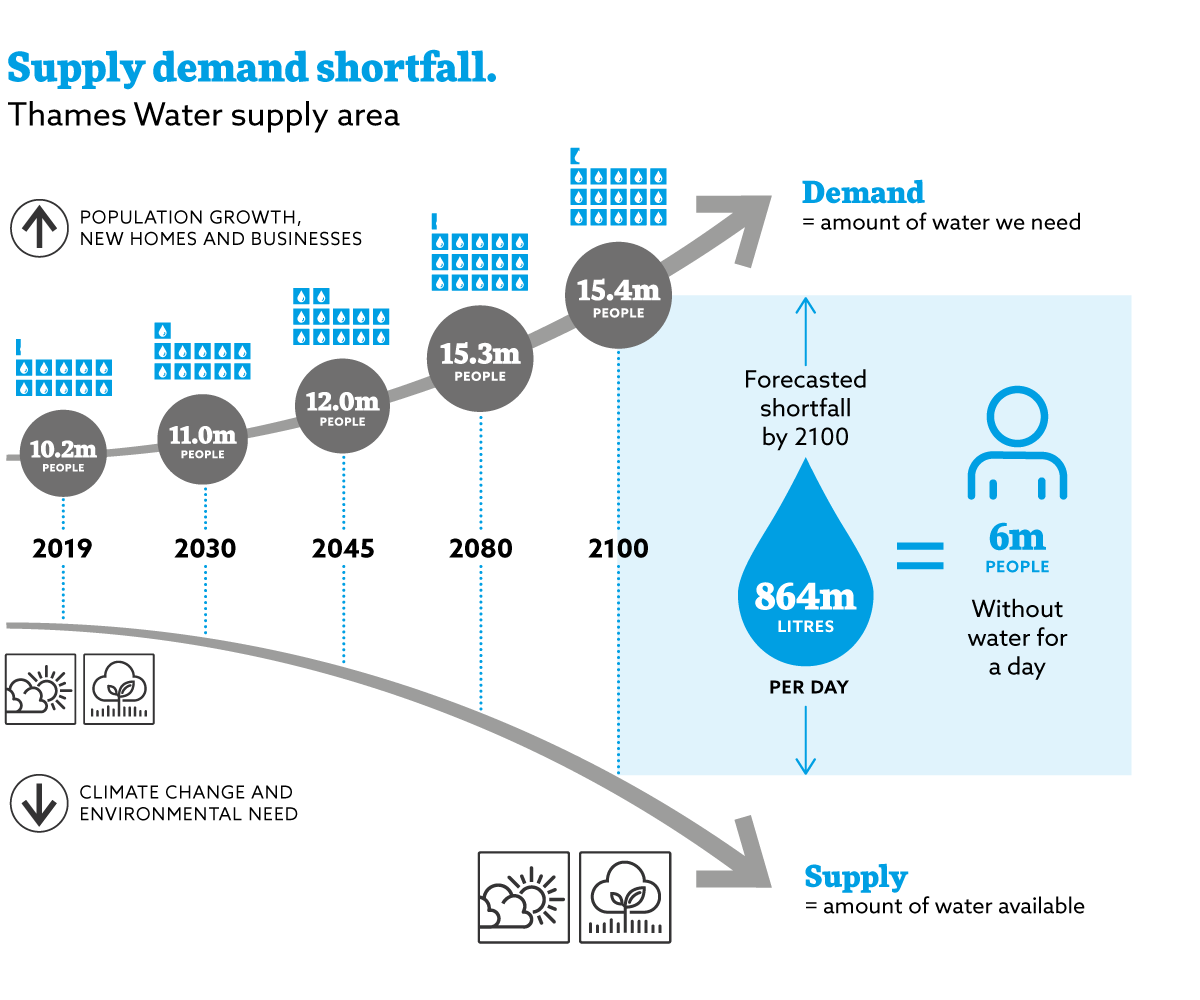Insights
Water neutrality: the next net zero carbon.
Uncharted waters.
Hydropolitics and hydropsychology are on a global scale, with the possibility of water wars and a ‘liquid gold’ resource becoming ‘the next oil’. Now, with the realities of water scarcity already being seen, we consider the implications closer to home and the role of buildings in bringing water neutrality to bear.
We need water wastage to be as socially unacceptable as blowing smoke in the face of a baby or throwing your plastic bags into the sea.
Sir James Bevan – Environment Agency Chief Executive.
These were the attention-grabbing words of Environment Agency Chief Executive Sir James Bevan at the 2019 Waterwise Conference, driving home the importance of the need for us to take responsibility for our own water usage. Sir James used smoking, seatbelts and single-use plastics as clear recent examples of mass human behaviour successfully modified and spoke of an unnerving graph widely featuring in water company business plans, colloquially known as the ‘jaws of death’.
One axis shows predicted water demand over the next decades (the line travelling upward as more people, homes and businesses appear over time). The other shows available water (the line travelling downward as the effects of climate change kick in). These lines significantly diverge around 20 to 25 years from now, creating said ‘jaws’ – the point at which, without serious action, we won’t have enough water for our needs.

The unnerving graph known in the industry as the ‘jaws of death’. Source: Thames Water.
By the time Sir James spoke at the Royal Society Conference in 2021, the National Framework for Water Resources had been implemented to identify England’s long-term water needs – which sectors will use the most, and the actions required to ensure resilient water supplies will be available. “What gets measured gets done,” said Sir James, who this year focused on the flatlining that has occurred since the progress of the 1990s, due to development and continued industrial pollution. Currently only 14% of our rivers meet the criteria for good ecological status.
Such stark realities have prompted other high-profile campaigners to direct attention to our water issues, including comedian Paul Whitehouse with his documentary Our Troubled Waters, and the singer of The Undertones, Feargal Sharkey, who continues to shout about water quality from the rooftops. Across the pond. Hollywood actor Matt Damon has co-founded global water and sanitation charity Water.org to improve access to safe water.
In the words of Leonardo Da Vinci, water is the driving force of all nature, and while excess carbon is indisputably very bad for the environment, a scarcity of water, even for a week, spells deadly news even quicker. Water resource management is not just nice to have – it’s essential – and many believe that the UK should be setting a date for becoming water neutral, as it has done for net zero carbon. It’s our next big battleground, with water neutrality – i.e. not increasing the rate of abstraction for drinking water supplies above existing levels – key to the win.
“We often take water for granted. For decades, we have had a solid, reliable water infrastructure in the UK, and have been secure in the knowledge that we can turn on the tap and get access to fresh, wholesome water without worrying that it might run dry,” says chartered public health engineer David Sorisi, Associate Director at Hoare Lea. “As Benjamin Franklin said, ‘when the well is dry, we know the worth of water’: only when a resource starts to become scarce, and cost more, does fundamental change happen. We have seen this throughout history. As a modern society, we should be in a position where everyone has access to a clean water supply that doesn’t cost the earth.”
As Benjamin Franklin said, ‘when the well is dry, we know the worth of water’: only when a resource starts to become scarce, and cost more, does fundamental change happen.
David Sorisi Associate – Director.
Keep a look out for part 2 where we discuss how new water supplies need to be diverse, sustainable and affordable.
Illustrations by Mark Boardman represented by meiklejohn.co.uk